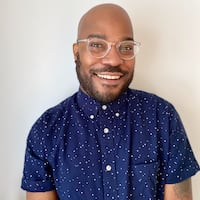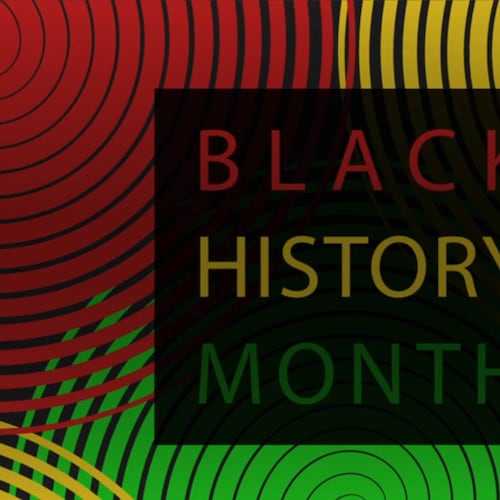In The Atlanta Journal-Constitution’s hip-hop documentary, “The South Got Something To Say,” music producer Rico Wade recounted how he grew up in Atlanta under the large shadow of Maynard Jackson, the city’s first Black mayor.
Jackson, partly through his bureau of cultural affairs, helped create avenues for Black kids in the city to express themselves artistically and Wade admitted that he benefitted from them.
From the legendary dungeon of his mother’s home in southwest Atlanta, he crafted Atlanta’s hip-hop sound through his collective, Organized Noize, which begot OutKast and the Goodie Mobb, and told the stories of Atlanta’s grit, grime and glamour.
And with it, he rose to become one of the genre’s most influential producers.
“Rico demonstrated what Atlanta will give to you if you come at Atlanta right,” said author and historian Maurice Hobson, who has written extensively about Wade.
He added that Wade was able to identify and promote talent, even if it meant pushing himself into the background.
“When he saw OutKast, instead of being about him rising, he was like, ‘We can get behind these boys,’” Hobson said. “The fact that he was willing to sacrifice is a beautiful story about his selflessness. He would give you the shirt off his back.”
Rico Wade, one-third of the legendary Atlanta production group Organized Noize and a founding member of the Dungeon Family, died Saturday. He was 52.
“We are deeply saddened by the sudden and unexpected passing of our son, father, husband, and brother Rico Wade, Wade’s family said in a statement sent to the AJC. “Our hearts are heavy as we mourn the loss of a talented individual who touched the lives of so many. We ask that you respect the legacy of our loved one and our privacy at this time.”
A representative for the family said the cause of Wade’s death is unknown. He was survived by his mother, two sons, wife, and a host of brothers and sisters.
Atlanta rapper Killer Mike announced the news in an Instagram post Saturday morning.
Credit: Tyson A. Horne
Credit: Tyson A. Horne
“I don’t have the words to express my deep and profound sense of loss,” Killer Mike said in the tribute post. “I am praying for your wife and children. I am praying for the Wade family. I am praying for us all. I deeply appreciate your acceptance into the Dungeon Family, mentorship, friendship and brotherhood. Idk where I would be without y’all.”
Hobson, who interviewed Wade extensively for his book, “The Legend of the Black Mecca: Politics and Class in the Making of Modern Atlanta,” called him, “Just a brilliant brother from southwest Atlanta.”
Hobson, who teaches African Studies at Georgia State University, said Wade’s legacy has to be put in the context of Atlanta’s history, particularly as it relates to civil rights, or an extension of it.
“Everyone wants to make Atlanta about civil rights and the respectable notion of civil rights. But there is this other Atlanta that is connected to the ideal of civil rights,” Hobson said. “Hip-hop is a conversation on the ground about the experience of those who are vulnerable. Rico elevated that component.”
» Read and sign the online guestbook for Rico Wade.
Regina N. Bradley, the author of “Chronicling Stankonia: The Rise of the Hip-Hop South,” put it succinctly in a post in X, formerly known as Twitter: “There was literally no Dungeon Family without Rico Wade or his mama’s house.”
She would write later that she felt like she lost a “big cousin.”
“There would be no Atlanta hip-hop without him. We wouldn’t have an OutKast or a Goodie Mob without his production,” said Bradley, a professor of English and African Diaspora Studies at Kennesaw State University. “He had the insight and the vision for what he wanted to see and hear. He was the sonic architect.”
Organized Noize, which also includes Ray Murray and Sleepy Brown, was established in the early 1990′s. The production team created hits for Outkast, Goodie Mob, TLC and more. The group’s funk and soul-inspired sound became a pillar for the future of Atlanta hip-hop.
Credit: Tyson A. Horne
Credit: Tyson A. Horne
Outkast and Goodie Mob were part of Organized Noize’s Dungeon Family musical collective, which also included artists like Killer Mike, Janelle Monáe and Future (who is Wade’s cousin). The Dungeon Family got its name from “the Dungeon,” Wade’s studio, which was located in the basement of his mom’s East Point home.
“We are devastated by the news of the passing of our dear brother Rico Wade,” Organized Noize and the Dungeon Family said in a statement. “The world has lost one of the most innovative architects in music, and we have lost an invaluable friend. Rico was the cornerstone of Organized Noize and the Dungeon Family, and we will forever treasure his memory and the moments we shared, creating music as a united team. Our hearts weigh heavy with sorrow, and we kindly request privacy and empathy during this challenging period. Rico’s presence will always have a special spot in our hearts and in the music we presented to the world.”
Organized Noize was the subject of the 2016 documentary “The Art of Organized Noize.” The group also appeared in the AJC’s documentary “The South Got Something to Say.”
Bradley’s 2021 release, “Chronicling Stankonia,” looked at the influence of OutKast as a social movement spearheaded by the work that Wade was doing with the Dungeon Family and Organized Noize.
“And he did it with such grandeur and innovation. No one could replace what he did and how he did it,” Bradley said. “He dared to dream and he dreamed big. It paid off for him and us.”
Keep Reading
The Latest
Featured





